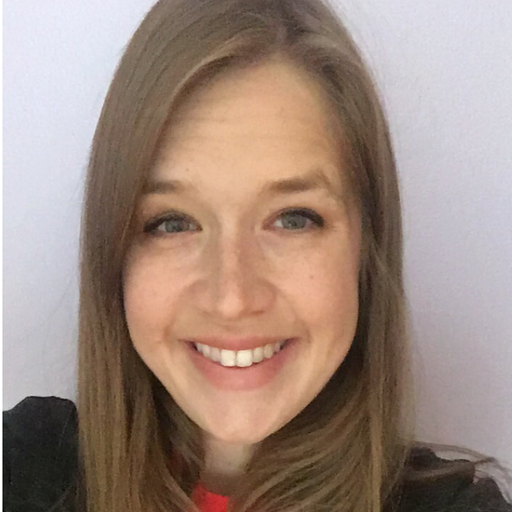Nurse Types / Endoscopy Nurse
Becoming an endoscopy nurse is among the many nursing specialties you can explore. Endoscopy nurses work with healthcare professionals to diagnose and treat gastroenterological and respiratory conditions like irritable bowel syndrome (IBS) and chronic obstructive pulmonary disease (COPD).
Nursing is one of the healthcare careers that provide endless possibilities for advancement in the field. Whether you enjoy bedside care as a registered nurse (RN) or want to climb the nursing ladder to leadership positions, you have options.
Endoscopy nurses require a specialized education and on-the-job experience to work in the field.
In this article you’ll learn:
- What is an endoscopy nurse?
- What do endoscopy nurses do?
- Where do endoscopy nurses work?
- What are closely related fields?
- How do you become an endoscopy nurse in 3 steps?
- What are additional requirements of endoscopy nurses?
- What are the salary and career outlooks for endoscopy nurses?
What is an endoscopy nurse?
An endoscopy nurse is a registered nurse (RN) who diagnoses, screens, and treats gastroenterological and respiratory conditions. Your patients can experience a variety of health conditions affecting the gastroenterological and respiratory systems including:
- Acid reflux/GERD
- Asthma
- Chronic obstructive pulmonary disease (COPD)
- Gallstone pancreatitis
- Irritable bowel syndrome (IBS)
- Lung cancer
- Peptic ulcer disease
- Pulmonary fibrosis
Qualities of a successful endoscopy nurse
All nurses, regardless of their specialty, must be compassionate and empathetic toward their patients and their families. Endoscopy nurses are no exception.
Given the seriousness of some of the conditions you may treat in this specialty, your patients might be in a great deal of chronic pain.
Other qualities of successful endoscopy nurses include:
- Attention to detail makes you better at diagnosing and treating patients.
- Communication skills help you coordinate patient care with other healthcare team members.
- Problem-solving abilities equip you to deal with unexpected issues during diagnosis or treatment of gastroenterological and respiratory conditions.
What do endoscopy nurses do?
Endoscopy nurses assist doctors and other healthcare specialists in diagnosing and treating patients with gastroenterological or respiratory conditions. In this role, you can help with endoscopic procedures such as ablations and colonoscopies.
Additionally, you may assist with surgeries or other procedures and provide beside care to patients recovering from them.
There is an educational component to your job as well. You may be tasked with answering patient questions and addressing their concerns about diagnosed conditions or recommended procedures.
NURSE TIP

A day in the life of an endoscopy nurse
Working as an endoscopy nurse can be challenging yet rewarding. No two days are the same, keeping you on your toes and anticipating the unexpected.
One minute, you may be assisting with a colonoscopy. The next, you might be talking to a patient and their families about maintenance for a chronic gastroenterological or respiratory condition.
No matter what you’re doing, you can expect to be tired at the end of a shift because endoscopy nursing is a fast-paced career.
Common conditions treated by endoscopy nurses
Endoscopy nurses work with other healthcare professionals to treat a variety of gastroenterological and respiratory conditions. Once a patient is diagnosed, you can expect to assist with care plans for the following common conditions:
- Acid reflux, heartburn, and GERD
- Asthma and other upper respiratory issues
- Chronic constipation or diarrhea
- Chronic obstructive pulmonary disease (COPD)
- Gallstones and gallstone pancreatitis
- Lung cancer
- Pulmonary fibrosis
Where do endoscopy nurses work?
Endoscopy nurses can work in a variety of healthcare settings. Three of the most common employers for endoscopy nurses include:
- Endoscopy labs. RNs who specialize in endoscopy can choose to work in an endoscopy lab in an administrative capacity. In this setting, you can supervise lab technicians and other endoscopy team members. You also may be tasked with overseeing equipment preparation and disinfection protocols.
- Gastroenterological specialty clinics. You can perform diagnostic and disease-management duties in this healthcare setting. Additional duties can include conducting cancer screenings and overseeing patient management for chronic conditions.
- Hospitals. In this healthcare setting, you’re responsible for monitoring patient vitals during procedures and recovery. Providing information to patients and their caregivers about diagnostic testing and treatment options also may be required.
What are closely related fields?
If you are interested in gastroenterological and respiratory conditions but do not want to become an endoscopy nurse, you have career alternatives. Becoming an endoscopy technician is one possibility.
Endoscopic technicians prepare the room and equipment before an endoscopic procedure. They also handle all clean up and sterilization of equipment afterward.
You can become an endoscopy technician by attending an endoscopy technician program offered at a community college or technical school.
Get job matches in your area + answers to all your nursing career questions

How do you become an endoscopy nurse in 3 steps?
Becoming an endoscopy nurse involves three steps. You must become a licensed registered nurse (RN), accumulate relevant nursing experience, and then obtain certifications for your specialty.
Step 1 – Become a registered nurse
Earning your registered nurse licensure is the first step in your journey to becoming an endoscopy nurse. There are two steps involved in the process: earning a degree and passing the NCLEX-RN exam.
Earn a degree
You have the option of earning an Associate Degree in Nursing (ADN) or a Bachelor of Science in Nursing (BSN) degree to qualify for an RN license. Some healthcare employers prefer RNs with BSN degrees. You should research your employers of interest to ensure you have the right degree for the job.
If you’re already an RN with an ADN degree and you find out you need a BSN, you can earn your bachelor’s degree with an RN-to-BSN bridge program.
Interested in switching to nursing from another career? If you already hold a bachelor’s degree in an unrelated field, you can apply to an Accelerated BSN program to fast-track the process.
Pass the NCLEX exam
Once you have a nursing degree, the next step is to pass the NCLEX-RN exam. The state board of licensing in your intended state of practice administers the test and grants RN licensure to those who correctly stay above the pass line with a 95% confidence interval.
The NCLEX includes a minimum of 75 questions and a maximum of 265 questions. Each question tests the application of the knowledge you learned in nursing school.
If you fail the NCLEX on your first attempt, you can retake the exam in 45 days.
Step 2 – Accumulate experience
Clinical nursing experience as an RN is critical to becoming an endoscopy nurse. Some nursing professionals who wish to pursue a career in endoscopy nursing begin work as an RN in any healthcare setting. Doing so allows them to gain experience as an RN in the field.
Later, they may transition into roles where they can begin to build relevant skills needed for endoscopy nursing.
If you plan to pursue gastroenterology RN certification, you must have at least two years of clinical experience to qualify.
Helpful skills and experience
Working in healthcare settings that help you gain relevant experience and shape your nursing skills can make all the difference when becoming an endoscopy nurse.
Look for nursing roles that provide ample opportunity to:
- Administer patient care before, during, and after gastroenterological and respiratory procedures and treatments
- Clean and sterilize equipment before and after use
- Educate patients and their caregivers about their conditions and treatment options
- Observe patient vitals signs before, during, and after surgeries and procedures
- Sedate patients before procedures
Changing specialty to an endoscopy nurse
When transitioning into a new nursing specialty, you must ensure you meet all requirements for certifications and licensure. One of the steps in your preparation can include taking continuing education courses focused on gastroenterological and respiratory conditions and nursing best practices.
Some signs you are ready to change your nursing specialty include:
- You no longer feel challenged in your current nursing role
- You no longer feel passionate about your work
- You no longer look forward to going to work every day
Step 3 – Obtain certifications
The final step in your journey to becoming an endoscopy nurse is to become board certified in your specialty. Endoscopy nurses can seek credentials through the American Board of Certification for Gastroenterology Nurses.
You must pass a competency test to receive your initial certification. Recertification must be completed every five years. You can get recertified by retaking the exam or applying by contact hours.
What are additional requirements of endoscopy nurses?
The treatment protocol and best practices for patients with gastroenterological and respiratory conditions changes. You’ll want to stay abreast of any improvements by educating yourself on innovations within this nursing field.
You also must monitor the renewal and recertification dates for your RN licensure and any specialty certifications you possess to ensure they do not expire.
What are the salary and career outlooks for endoscopy nurses?
Endoscopy nurses earn a decent wage, with the national average median salary at $91,852 a year. Some endoscopy nurses can make as much as $224,000 annually, depending on their location and employer.
According to the U.S. Bureau of Labor Statistics, endoscopy RNs can expect a 6% between 2021 and 2031.
Job satisfaction
High nursing turnover has plagued the healthcare industry for decades. Endoscopy nursing has its fair share of nurses joining and leaving the specialty.
Endoscopy nursing can be stressful and demanding. However, some nursing professionals in the specialty report high satisfaction levels with their work because it’s challenging and rewarding.
Next steps
Continuing to challenge yourself professionally is easy when you choose a career as an endoscopy nurse. Options for advancement include returning to school to earn a Master of Science in Nursing (MSN) degree or a Doctor of Nursing Practice (DNP).
Advanced degrees allow you to shift your focus to academia, research, or supervisory roles that still permit some hands-on patient care. You can use our nursing community tools to seek advice from other nursing professionals before you decide what’s best for your nursing career.
Get job matches in your area + answers to all your nursing career questions

FAQs
An endoscopy nurse is a registered nurse (RN) who diagnoses, screens, and treats gastroenterological and respiratory conditions.
Endoscopy nurses can work in a variety of settings, including endoscopy labs, gastroenterological specialty clinics, and hospitals.
You must first become a licensed RN, which requires earning an Associate Degree in Nursing (ADN) or a Bachelor of Science in Nursing (BSN) degree. Then, you can pursue specialty certification by gaining relevant experience in the field.
Sources
- Definition of respiratory disease. cancer.gov. Accessed October 11, 2022.
- Gastrointestinal Diseases. my.clevelandclinic.org. Accessed October 11, 2022.
- Improving Endoscopy Staff Professional Satisfaction and Employment Retention Through Clinical Educational Didactic. journals.lww.com. Accessed October 11, 2022.
- Registered Nurses. bls.gov. Accessed October 11, 2022.
- Surgical Assistants and Technologists. bls.gov. Accessed October 11, 2022.
- What is the Average Endoscopy Nurse Salary by State. ziprecruiter.com. Accessed October 11, 2022.
- Image from Canva.com
